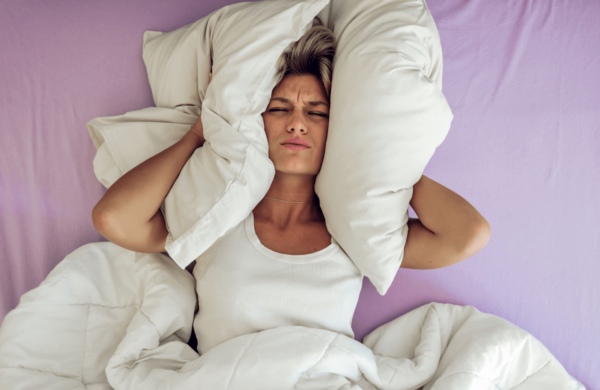Sleep Better Tonight: The Truth About Magnesium and Its Impact on Sleep
In the modern world that we live in, sleep is becoming harder & harder to master. Getting more than your recommended 7 hours of shut eye can be tough for a lot of people.
People are always looking for an alternative to melatonin & that’s why we’re often asked, does magnesium help you sleep?
The answer is YES, sort of. The thing is, it depends on a few factors that you need to consider.

Best Magnesium for Sleep
There are many different types of magnesium, people often just run out to their local supplement shop and just buy any magnesium without realising that they all have different properties.
The different types of magnesium are:
- Magnesium chloride
- Magnesium citrate
- Magnesium glycinate
- Magnesium lactate
- Magnesium malate
- Magnesium oxide
- Magnesium taurate
- Magnesium threonate
- Magnesium sulphate
Which is the Best Magnesium for Sleep?
Our choice is Magnesium Glycinate.
Magnesium Glycinate has a higher bio-availability compared to other compounds like magnesium oxide or chloride, meaning that it is more easily absorbed by the body.
This glycinate version of magnesium is also tolerated well by humans, as some types can make people have diarrhea or feel unwell in general.
Be warned, taking too much magnesium can resort in upsetting your body’s natural zinc, copper & calcium balance.

Why is Zinc and Magnesium Good for You?
Zinc & Magnesium are elements that are needed by the body to function optimally, for different purposes. Zinc is used by the body for things like wound healing, growth & development, immune function & protein synthesis.
Magnesium is the second biggest human deficiency behind vitamin D, meaning that a lot of us have to supplement it so that our body can work properly.
Once magnesium is absorbed by the body it has many benefits that include:
- Anxiety relief
- Bone health
- Reduced symptoms of PMS
- Athletic recovery
- Better sleep
What Dose of Magnesium Glycinate Should I Take for Sleep?
Magnesium glycinate doses are often seen around 1350mg-3000mg, with zinc daily dosing often around 15-50mg.
This magnesium glycinate dose will get you around 150mg-300mg of elemental magnesium (the actual part of magnesium you want to absorb).
Always check the back of your label to find out the amount of elemental magnesium you will be getting.
Elemental Magnesium Daily Doses
Adult Men should get around 400-420mg each day.
Women should aim to get a total daily dose of around 310-320mg per day.
Athletes should aim to get anywhere between 400-600mg of elemental magnesium.
You should always speak with your doctor when trying any new supplements.
How Does Magnesium Help with Sleep?
Magnesium can help with your sleep optimisation in several different ways, one way is that it can help reduce cortisol levels.
Cortisol is the bodies ‘stress’ hormone, this can keep you awake at night as it can affect anxiety levels.
If you have too much cortisol in your body at night it can increase your heart rate & body temperature.
For the best sleep, it has been proven that your body temperature needs to lower at night to induce sleep, that’s why sleeping in a cold room helps you get better sleep. You can read more about how to get to sleep fast.

Cortisol levels can increase by having caffeine, work stress or if you’ve been exercising really hard without enough recovery.
Supplementing magnesium can reduce cortisol levels, which in turn can improve sleep.
Another way in which magnesium can help with sleep, is that it can promote relaxation. It does this by binding to the GABA receptors, which in turn stimulates the natural production of GABA in the brain.

This slows down our brain activity so that we can feel relaxed, with less brain messages firing.
Sometimes when you’ve got outside stresses going on in your life, these stresses can impact your sleep, wake you up in the middle of the night & also stop you from getting back to sleep.
What is sometimes happening in this instance is something called a catecholamine dump.

This is when your body is failing to deal with neurotransmitter clearance, for things such as dopamine.
More specifically it’s the enzyme COMT (catechol-O-methyl transferase) which manages the neurotransmitter clearance, but it is being slowed.
If this process is slowed, the brain cannot clear dopamine which means that you are more likely to wake up. COMT needs magnesium to function properly, to clear out these neurotransmitters which will help keep you asleep in your sleep cycle.
Types of Magnesium Administration
There are several ways in which people like to use magnesium, the main one being supplementing with capsules, as you can get an accurate dosing.
This is often one of the cheaper methods to use. This is often where people will either take something like magnesium glycinate in the evening for sleep, or magnesium threonate for cognitive function.
Can you absorb magnesium through the skin?
Another method is magnesium oil spray for relaxation, sleep & to help with eczema and psoriasis.
This is a convenient way of absorbing magnesium called transdermal magnesium. This is where the skin uses a mechanism to absorb and breakdown the magnesium.
If you want to find out more about the meaning of transdermal you can follow the link to read more.

You can also buy magnesium creams or lotions, they are to be rubbed into your skin as a moisturiser. The skin is good for absorbing magnesium, but the only issue is you can’t specify a certain dose.
The final way is using Lavender Epsom Salts, Eucalyptus Bath Salts or Magnesium Flakes in your bath, these contain magnesium & can be broken down and absorbed into your skin while you’re bathing yourself.
These can be very relaxing, but it’s also hard to get an exact dosing.






